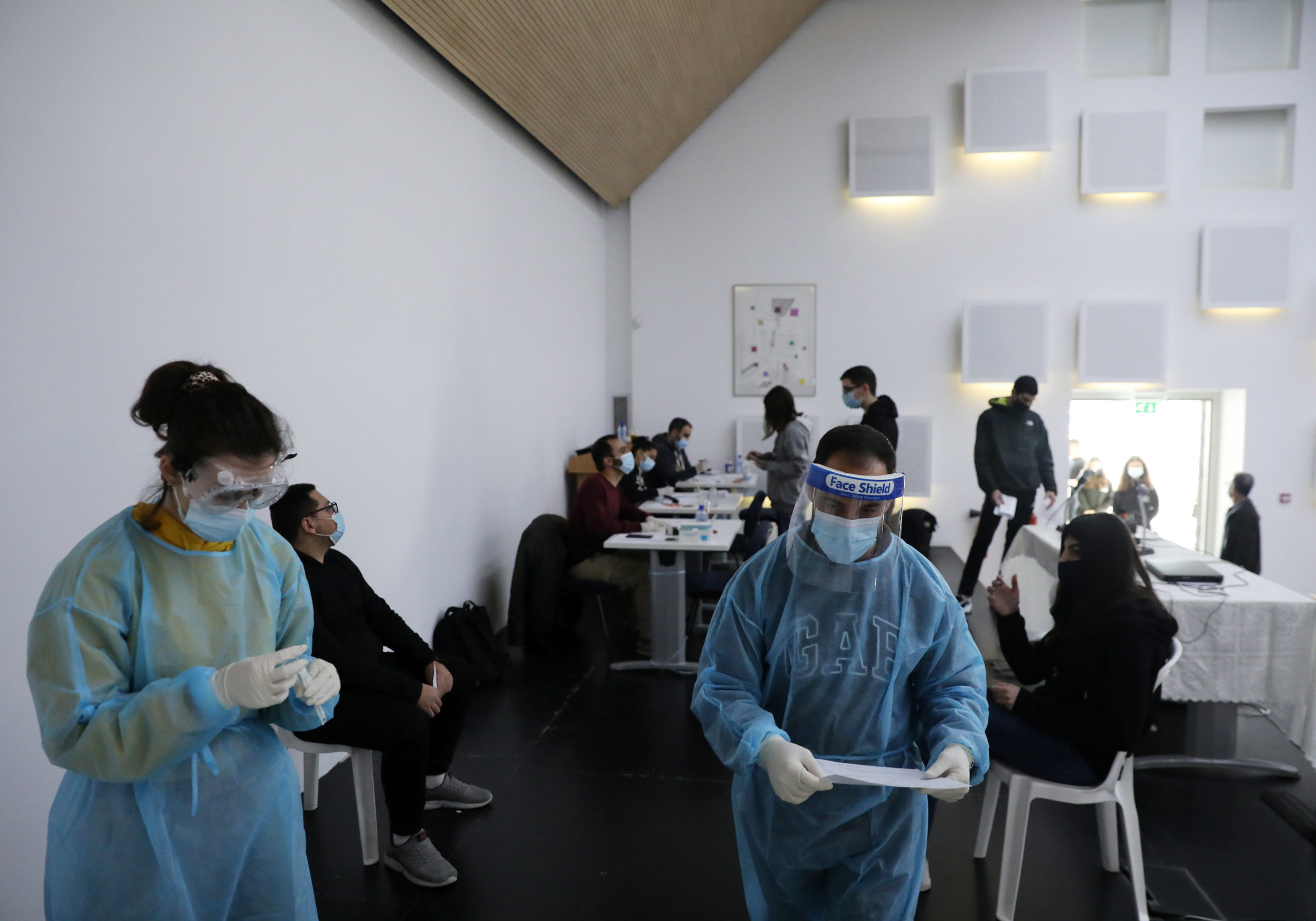The Health Ministry is holding back from implementing a ‘test to stay’ policy in primary and secondary schools for close contacts of classmates who contract COVID-19, following a teacher backlash.
Following a cabinet decision, the measure was to come into force next week.
The test to stay policy would put aside compulsory quarantine rules for close contacts of covid cases at schools, favouring daily tests for five consecutive days.
However, a push back from teacher unions has led Health Minister Michalis Hadjipantelas and Education Minister Prodromos Prodromou to delay the new rule until meeting unions on Monday.
Upon hearing the measure, school teachers threatened strike action after the government changed its compulsory quarantine rules for close contacts of covid cases at schools.
Teachers argue it would increase transmission risk, defeating the goal of keeping the schools open.
Tellingly, the ‘test to stay’ measure did not make it into the health minister’s latest coronavirus decree, with reports saying it will become optional.
Unions have threatened to walk out in protest over anticipated negative consequences of “turning schools into infirmaries and teachers into healthcare workers”.
On Thursday, Health Minister Michalis Hadjipantelas chaired a meeting to discuss the optimal way of implementing the ‘test to stay’ measure.
Taking part were Prodromou, the head of the Covid advisory team Constantinos Tsioutis, and health ministry officials.
The Health Ministry said the government would meet with teacher organisations on Monday to brief them on how the measure is to be rolled out.
At that meeting, the start date for implementation would also be announced.
Media reports have authorities ready to tweak their “test to stay” policy, allowing parents of close contact students, to decide whether their child will go home to self-isolate or remain at school taking daily tests.
It was also clarified that “test to stay” will only concern close contacts and not the entire coronavirus positive student section.
It will only apply to children who are still defined as close case contacts in a school department based on the existing protocol.
Students defined as close contacts of a classmate diagnosed positive for the virus will be tested by mobile units.
Meanwhile, the Health Ministry has already taken action to enhance its testing capabilities by increasing staff numbers and the mobile sampling units, to serve schools.
According to the data provided by the tracing unit, some 2,000 close contacts are declared by students who test positive for COVID-19 every day.










